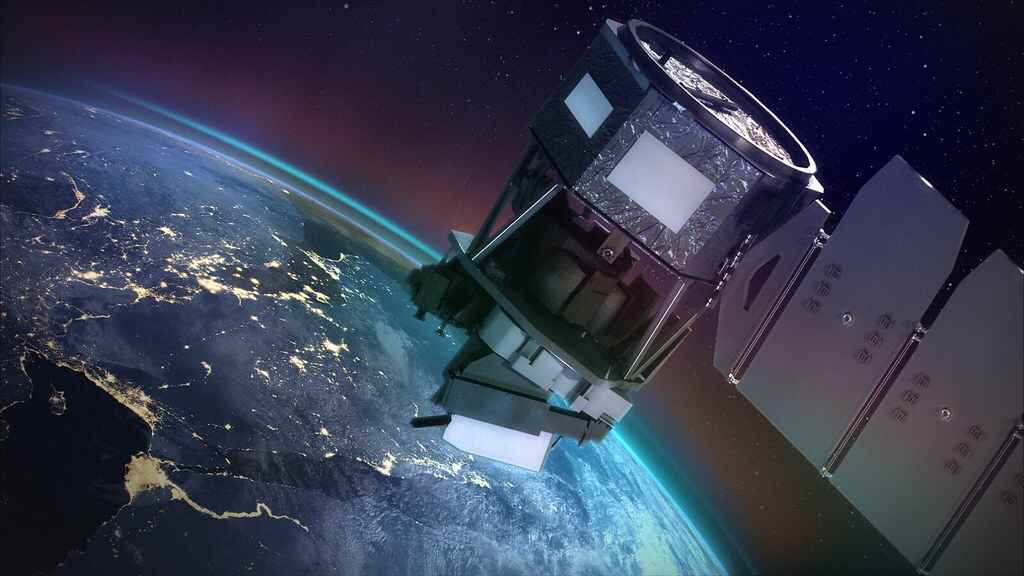Nowadays space exploration has evolved from being the field of governmental institutions. And now it has become the sphere of interest of the largest global technological companies. These companies which have revolutionized lives on the earth are now aiming for the heavens. Technology companies have revolutionized the space business through numerous efforts. These innovations have also given the industry a new direction. This blog post will highlight major ways in which the dominant technology companies are leading changes in future space exploration. We will also look at their investments, joint ventures and innovation in technologies.
The Shift Towards Tech Giants in Space
Space exploration, once dominated by governmental organizations like NASA and Roscosmos, is now witnessing a significant shift. Companies of the technology sector are emerging as significant industry players; their spending shaped it. Business entities such as SpaceX, Blue Origin, and Virgin Galactic are at the forefront of this campaign. Well these are not the only ones. Many others, both local and international tech titans, have joined the party. Companies like Google, Amazon, and Facebook are leveraging.
This shift has been activated by the notion that space exploration is not only about the acquisition of some scientific knowledge. It ranges from opening new markets, improving the quality of international communications, to saving humanity itself. As such, it is no longer just about getting into space, but how space might be leveraged for business, innovation, and aid.
How Tech Innovations are Transforming Fitness and Wellness Industry?– Find Out in our Blog!
Tech Giants in Space Exploration Leading the Charge
1. SpaceX: Pioneering Commercial Space Travel
Start-ups led by technology titans of Silicon Valley capturing the public imagination and dominating the launch industry are SpaceX founded by Elon Musk. This has brought a revolution in space exploration right from its start. The major business strategy of the company is to try and bring down the cost of launching space crafts. This can be done by the usage of reusable rockets. Most significantly, the Falcon series of rockets and the Dragon continued have broken records in the market. Also, SpaceX’s big picture of manned space travel and colonization of Mars shows business strategy and planning.
Currently, the company is considered quite successful. This success is due to its unique focus on combining avant-grade technologies with program-scaled ideas. Internet constellation Starlink proposed by SpaceX is focused on internet connection around the world. This is another good example of how tech giants in space are seeding emergence to create opportunities. This could span world’s benefit in the long run.
2. Blue Origin: Building the Foundation for the Future
Blue Origin has been founded by Jeff Bezos, the creator of Amazon, with the goal of making space conquest easier. That is why Blue Origin is also worth mentioning as it contributes to the future of space exploration just like SpaceX. New Shepard rocket of the company has successfully launched reusable rocket technology. New Glenn rocket could also challenge SpaceX’s Falcons Heavy as depicted by the following.
Blue Origin has the goal of creating good infrastructure that can substantially support space travel. It’s their vision to establish a base on the Moon. It also intends to design space habitats in which millions of people could live and work. Through this aggressive investment into these technologies, Bezos is making it seem like Blue Origin is the key future of the space.
3. Amazon: Expanding Connectivity Through Space Exploration
Amazon, no longer content with dominating ground-based businesses across the Earth’s surface, is expanding its reach into space. The company is now applying its expertise in cloud computing services and logistics to this new frontier. Namely, Amazon’s Project Kuiper is to launch a constellation of satellites. This network is intended for the provision of broadband internet facility to those regions and countries that virtually have no proper connection. Consequently, this challenging project establishes Amazon as one of the leading tech companies in space.
Actually, Amazon Web Services (AWS) has also been a part of space projects. The company offers services for cloud computing for analysis and archiving of the satellite data. Through the four services, Amazon is helping others in the space industry advance and deploy their products more efficiently. This approach fosters a symbiotic relationship in space exploration.
4. Google: Mapping the Final Frontier
Google is still active in space exploration through use of data through mapping and imaging services. For instance, the company was able to acquire the Skybox Imaging which is today called Terra Bella. It has beamed sharp images of the Earth from space. Therefore, investments made in the satellite technology give us Google Earth, where we can get a detailed look of our planet.
The company also collaborates with different space departments to provide maps of other planetary surfaces, such as the lunar and Martian ones. Thus, having used artificial intelligence for analyzing satellite images, Google goes beyond the traditional exploration of space.
5. Facebook: Connecting the World from Tech Giants in Space Exploration
It should come as no surprise that a company with the mission to connect the world has looked to space based solutions. Facebook, through its Connectivity Lab, has been working on innovative projects. These include using satellites and high-altitude drones to connect remote areas to the World Wide Web. Although Facebook recently canceled its Aquila drone project, its commitment to space technology remains strong. The company continues to focus on making connectivity more accessible worldwide.
The fact that Facebook is interested in space exploration is what fuels its need to connect the next billion people. Facebook is eager to emphasize its commitment to bridging digital divides. It aims to ensure that even isolated communities can benefit from the digital revolution through space-based communication solutions.
Collaborative Efforts and Public-Private Partnerships
This has also contributed to closer cooperation between the state and private businesses because tech giants have established themselves in space exploration. Organizations like NASA have partnered with private companies such as SpaceX and Blue Origin. These partnerships focus on developing new space technologies and performing missions once handled solely by government entities. These partnerships have been found to be productive because they integrate the creativity and the cost cutting measures associated with private organizations with the insights and knowledge of governmental bodies.
Besides, such activities suggest that there is a fast speed in space exploration. A lot of conventional space endeavors that were believed to be decades from a reality are now happening owing to collective work amongst tech titans and space organizations.
The Economic Impact of Tech Giants in Space Investments
The economic implications of having industry leaders in space are immense. As companies invest billions in space technologies and tourism, they are driving significant economic change. This includes the creation of new industries, jobs, and opportunities. The space industry, which includes satellite construction to the already existing space tourism, is predicted to generate trillions of US dollars in the decades to come.
Further, most of the inventions that are made for space station benefits have uses on earth too. The implementation of satellites has greatly improved global information transmission. It has also enabled accurate weather predictions and efficient responses to natural disasters. Apart from exploring the frontiers of space, the involvement of giants in space wants to retain growth and development for the economy.
Ethical Considerations and the Future of Space Exploration
It cannot be denied that the recent addition of tech titans towards space has been boosting advancement and innovation, however, the aspect of this move invokes several ethical concerns. Who controls space? But what effects do we see from rising space activity on the environment? Space technology pioneers continue to push boundaries with new innovations. This raises essential questions about ensuring space exploration beyond even appear brighter.
By their activities, those tech titans will define the future dynamics of extraterrestrial missions. They have all the resources, and the technology, and the dreams, to open new horizons and to determine the fate of the world. But as you may agree, this power is very much heavy especially with the decisions made to be paid for many generations to come.
Conclusion
In conclusion, the role of tech giants in space exploration is becoming increasingly significant. Not only are the programs funding the advancements of space technologies, but its changing dynamics of how humanity discovers new frontiers in space. The efforts of these companies are propelling advancements in space exploration. Their contributions promise a brighter future for manned missions and beyond. They range from rockets that can be used multiple times to provide internet for the world, several technological giants in space are paving way to a new era of exploration and innovation.
All these companies are making sure that human-beings’ dominion does not end at earth by adopting the latest technology and seeking new alliances. The journey is just beginning, and the sky is no longer the limit for tech giants in space.
Watch more about Technology on Our YouTube Channel!



